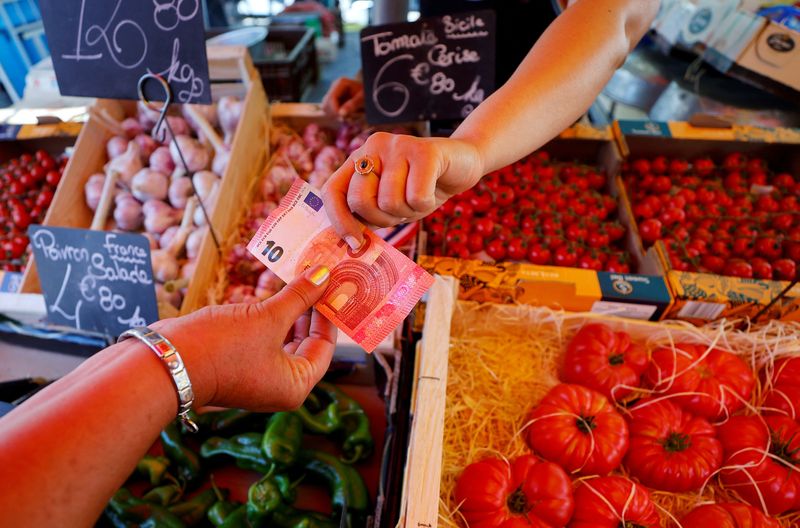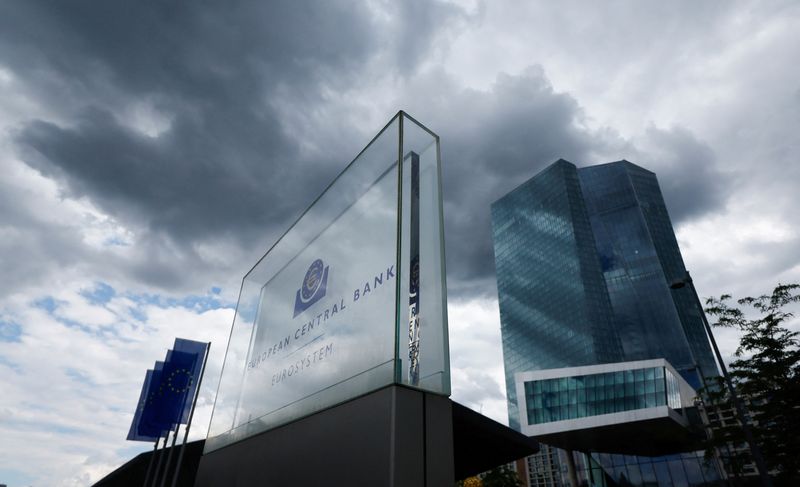By Francesco Canepa
FRANKFURT (Reuters) - Cash is close to losing its status as the main means of payment in the euro zone, traditionally one of the most resistant corners of the developed world to the rise of electronic payments, European Central Bank data showed on Thursday.
An ECB biennial Study on the Payment Attitudes of Consumers in the Euro area (SPACE) showed that cash now accounted for just over half of all transactions in the bloc at 52%, down from 59% in 2022. Its share had been as high as 79% in 2016.
Card payments continued to gain ground, rising from 34% to 39% in the last two years. Mobile payments' quota doubled to 6%.
The results will likely strengthen an argument inside the ECB that it needs to introduce a digital euro, practically an electronic wallet with the central bank, to ensure residents have access to a risk-free means of payment even in a cash-free world.
"By supporting both cash and the development of a digital euro, we want to guarantee people can always choose to pay with public money, now and in the future," ECB board member Piero Cipollone said.
Cards have long overtaken cash as the dominant means of payment in terms of value, accounting for 45% of all euros exchanged in the latest survey compared to cash at 39%.
Meanwhile, in European Union member Sweden, where electronic payments are most prevalent, authorities are worried about what might happen if those channels were disrupted.
In a brochure entitled "If there is a crisis or a war", Sweden recommends that people keep enough cash on hand to last a week.

The country's central bank has called on the government to force businesses selling essential goods such as prescription medicines, food and fuel, to accept cash and to strengthen cyber-security measures in the financial system.
With most banks no longer offering cash services at their branches, the central bank has also opened a number of cash depots to ensure access to cash across the whole country.
